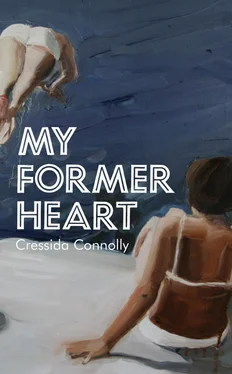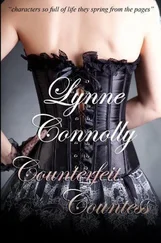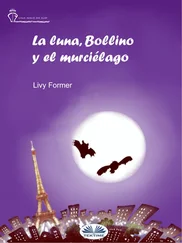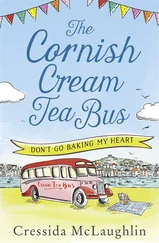‘Are all your turns going to be food?’ teased Verity.
‘It rather looks like it.’
From that afternoon, they spent all their free time together. They went to teashops, or sat on walls in the sun, or talked in each other’s rooms. Sometimes Verity was very serious and Ruth felt rather awed by her cleverness, but at other times she was girlish, even silly. But they never ran out of things to say. Verity’s family lived at Richmond upon Thames. There were three brothers, Verity the only girl. She had told Ruth a long story about her parents’ courtship, involving letters put in envelopes addressed to other people and misunderstandings and the wrong brother, but Ruth hadn’t really followed it all. It was all meant to be fearfully romantic, but when she met Verity’s mother and father she was disappointed: they were just ordinary, middle-aged people, who both wore glasses. Verity told her what her mother had said to her once: ‘Daddy and I love you all, but we will always love each other best.’ Ruth was not sure whether this statement wasn’t rather unkind to the children or, as Verity evidently believed, rather magnificent.
Ruth had other friends, but she missed Verity during her final year at school. She spent the last Easter holidays in Richmond with her, and the two planned to rent rooms in London together, once Ruth started at the Royal College of Music in September. An old girlfriend of Ruth’s uncle Christopher had a tall, thin house in South Kensington, where she took paying guests. The girls went to see her and liked the place, even though it smelled of cats. They would take up residence in the autumn. One of Verity’s brothers was in his final year at Cambridge, and the eldest had joined the Foreign Office and been posted abroad, but the middle brother, Harry, was living in London. He was working in some sort of insurance firm in the City.
Harry laughed easily and had the same fair, oddly blunt eyelashes as his sister, as though they had been chopped in a straight line with miniature garden shears. Among the Longdens he was teased for being the least clever and for the fact that he blushed easily. It was true that he wasn’t in the slightest formidable, as the rest of them were. He had ugly hands with stubby fingers, the knuckles whorled like knots of cross-graining in a piece of timber. It was his hands – or rather, the way she felt such peculiar tenderness towards his hands, a mixture of affection and pity – that made Ruth realise she liked Harry in a way that she had never liked anyone else before. His hands unsettled her. Whenever she was with him she glanced at them constantly. Harry had joined his sister and Ruth at a concert at the Wigmore Hall one evening and, sitting beside him in the dark, Ruth had spent the whole evening looking at his hands, folded loosely around the concert programme in his lap. By the time the music stopped she felt quite cross with him. The phrase: ‘He can’t keep his hands to himself ’ came into her mind. Such a condition seemed very desirable to her.
Once Ruth was established in London that autumn, Iris came down to visit, leaving Jamie with his doting great-aunt Hilary.
She was staying with her old friend Jocelyn for a few days. Ruth was to meet her for lunch at a little Italian place, by the corner of the underground at South Kensington.
‘You don’t mind if someone joins us, do you, darling? An old friend, I mean?’ said Iris.
Ruth felt the familiar tweak of disappointment which so often occurred within minutes of seeing her mother. They hadn’t met for months and she had been looking forward to their being alone together, without the distractions of little Jamie, or even the oddly menacing presence of Birdle. And she had never cared for Jocelyn. But it was a man who came into the restaurant and, smiling, approached their table. He bent to kiss Iris before holding out his hand to Ruth.
‘You remember Bunny, darling? He was a friend of Daddy’s, from Cambridge days.’
Ruth pretended she did.
The lunch wasn’t much fun. Bunny kept ordering bottles of raisiny red wine and talking about horses, and people who lived in Newmarket, while Iris smoked continually and laughed sharply, even though nothing was particularly funny. By the time they were having their coffee, Bunny was openly flirting with Ruth, offering to take her to the opera one night, to a box. He kept insisting that he would see her home in a taxi, although it was broad daylight and her digs were only a few streets away. Iris’s laughter had died away by the time the waiter had removed the plates from their main courses.
‘Actually I’ve got a class up at the College and I’d prefer to walk,’ Ruth lied. ‘Thanks though,’ she told him, once they were all out on the street.
‘Heavens, that man has become a bore,’ said Iris crossly, when Bunny had gone. ‘He used to be so original. Drink of course. Fatal.’
Iris had a plan for the afternoon: they would walk across the park and up Piccadilly to Bond Street. Jocelyn had told her that Fenwick’s had the smartest clothes, and she was determined to buy Ruth a coat for the winter. Iris was generous in fits. The October sunlight shone thinly through the plane trees, whose trunks bore a dappled tracery, as if they were half shadowed, half bleached with light. Iris walked fast, as always. In the store, a tired-looking assistant wearing thick, too-pale face powder brought out coats for Ruth to try on: one a dark chocolate-brown gabardine, belted; the next a pale-green swing coat with raglan sleeves which puffed at the wrists; then one in red bouclé, with big black buttons.
‘Oh, I think the green, don’t you?’ Iris asked the assistant.
‘The cut is very much of the season,’ the woman said.
‘It moves prettily at the back,’ said Iris.
Ruth surveyed herself in the glass and was not happy with what she saw: a young woman with dark hair that wouldn’t lie flat and bright eyes. Her calves were lean enough, but somehow lacked the curve necessary to make them look like the limbs of a real woman. They were a child’s legs, straight down, stumpy. The green coat accentuated the flaws of her figure and concealed its attractions: her trim waist and firm bosom were utterly lost within its folds. The colour reminded her of the drabness of hospital corridors. She thought it made her look like a huge broad bean. She wished the assistant would stop hovering so she could say so.
‘I’m not sure, actually,’ she said.
But Iris was.
‘That colour’s terribly fetching on you, darling,’ she said firmly.
‘But I don’t think I’m tall enough. I think I’d be better with a belt,’ said Ruth.
‘Don’t be silly, darling. Belted coats are for Norland Nannies. Swing coats are all the thing, for the young, I mean. Aren’t they?’ she asked the assistant, who murmured in assent. Iris was already reaching into her bag for her chequebook. Before Ruth could voice any further objections the coat was being whisked towards the counter and wrapped in tissue paper, like egg whites being folded into cakes. She was handed an important-looking paper bag, with the box containing the coat inside. The bag was grass green, with black lettering swooping across its sides, and thick string handles. Iris looked expectantly at her, for thanks.
Ruth was not going to let her mother see the tears which stung her eyes, so she bent as if to tighten the lace of her left shoe. She suddenly felt much younger than her years, forlorn and childish and mutinously ungrateful.
‘Well, I want to go down to Simpson’s and buy some tea,’ Iris announced briskly. ‘I’m going to be frightfully extravagant and get all sorts of exotic things one can’t find in the country, like Lapsang Souchong.’
‘It’s lovely being able to have as many cups as one likes now,’ Ruth said. Tea had only just come off the ration. ‘Last week it went to our heads rather. Verity and I drank so much tea that we felt quite sick.’
Читать дальше












